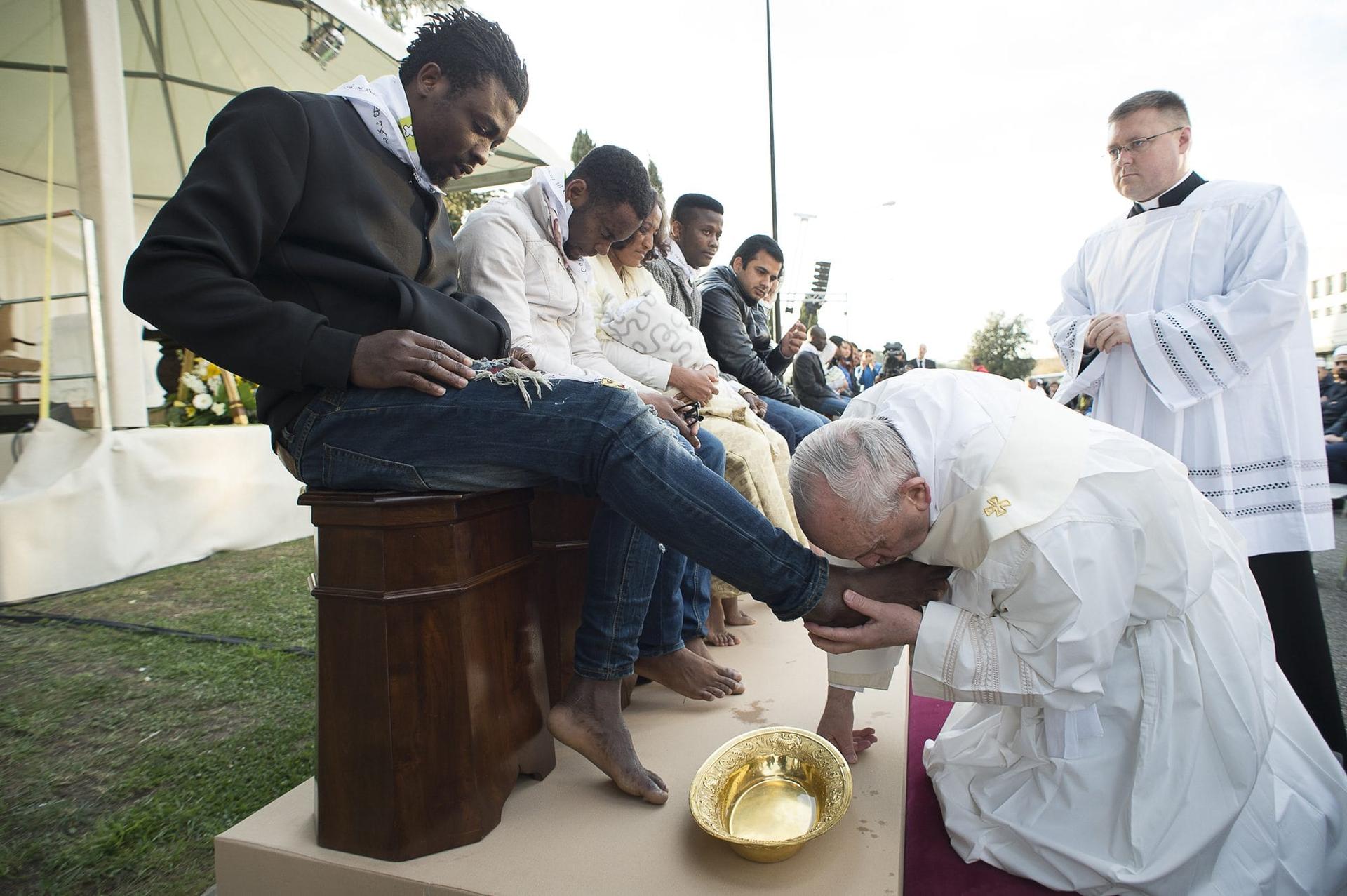MUMBAI, INDIA – When Pope Francis issued a decree in January stating that the Holy Thursday foot-washing rite should no longer be limited to men, it sparked widespread debate and led to a clarification from the Vatican’s top official for liturgy that the inclusion of women is an option rather than a mandate.
In the 22 Eastern churches in communion with Rome, however, the debate has taken a slightly different turn, focusing on whether the pope’s edict applies to them in the first place.
In an email interview with Crux, Father Paul Thelakat, editor of Light of Truth and a former spokesman of the Syro-Malabar Church in India noted that the “pope has made a change in the ritual of Latin Church. But as far as the oriental Catholics are concerned, ritual changes are made not by the pope but by the synod of bishops of the particular church.”
Thelakat said that’s the position of the two Eastern churches in India, including his own and the Syro-Malankara church.
Yet another Indian priest, a member of the Capuchin Franciscans named Father Nithiya Sagayam, believes the churches should go with the pope.
“The intent of the proposed change in washing of feet was to go back into the mind and heart of Jesus to become low as a servant,” he said.
“The church has to revive herself to make herself more and more meaningful in closely following Jesus. When it is convenient, we are ready to shift anything. But when it touches our life towards conversion, we find any number of philosophy to escape”.
The head of India’s Syro-Malankara Church head, Cardinal Mar Baselios Cleemis, who was earlier this month re-elected as the head of the Catholic Bishops’ Conference in India (CBCI), said that for the Holy Thursday rite this year, anyway, his church would stick to the Eastern tradition of including only men.
Cleemis said they would consult other Eastern churches before making a decision on the change suggested by Vatican, adding that the pope has only suggested the inclusion of women in the Rite and that it did not amount to a decree.
In Kerala, Cardinal George Alencherry, the head of the Syro-Malabar Church, washed the feet of 12 men only on Holy Thursday.
Sagayam, who was commissioned by Pope Francis as a “Missionary of Mercy” during his special jubilee year, says that attitudes of male dominance and gender inequality remain woven into the structures of the Indian Church.
Sagayam, who served on Justice and Peace commissions of both the Indian and the Asian bishops conferences, also lashes out at what sees as the “caste-based discrimination” among the clergy and religious congregations of men and women, such as the election of major superiors with “caste votes.”
“The Church, which is known for its radical stand against unjust structures has not come up strongly when it comes to social evils both within the church and without, with monitoring mechanism and executive power on caste and gender based discriminations and other social evils,” Sagayam said.
“We must know the history of the gift given to those whose feet were washed and kissed,” he said, citing the tradition of a bishop washing, drying and kissing the feet of “Thirteen” poor people after having dressed them, fed them and given them a charitable donation, saying the ritual carries with it the idea of lifting up the poor, the neglected and downtrodden.
“It was a shame on us, church leaders, to block the holy spirit,” Sagayam said, referring to not including women in the rite this year. He noted the irony that the Indian government has recently taken measures to boost the representation of women, but so far similar steps have not been taken by the Church.
“If the government can do it, how much more should the Catholic Church be eager to take up a counter-cultural [stance] that comes from Biblical Justice?” he asked.
“This prophetic tradition seems to be missing in our Indian Christian life today,” Sagayam said, “as there is more temptation towards managements of prestigious institutions rather than imbibing the spirit of the Gospel that gives good news to the poor and the oppressed.”
“The poor are in our rural areas, looking for an answer to their cry,” he said. “Mother Theresa of Kolkatta, soon to be a saint, and many others did not speak of cultural accommodation but created a counter-culture”.
Nirmala Carvalho is a Catholic journalist based in Mumbai, India, and a contributor to Crux.














